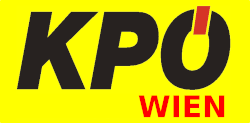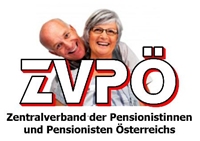Digital "Restrictions" Management
- Thursday, 24. March 2005 @ 20:55
comments on the "High Level Group on Digital Rights Management - Final Report March-July 2004"
The above mentioned Report falls short to describe the most important aspects of DRM like systems.
How does DRM work? DRM uses encryption and/or digital-watermarks to ensure that someone who wants to use a certain digital content has to pay for it and to limit what someone can do with this content. (E.g only make one copy but no further copies or only play it 3 times, etc..)
This can only work if the DRM-enabled software works in an extremely closed and secured environment so that it can not be circumvented. (E.g. For playing an audio file both the application software and the operating system must be secured or otherwise someone could make copies of digital audio data and free it from any of the DRM imposed restrictions).
It follows that DRM does not make much sense on Free Software ("open source") or Free Operating Systems (e.g. Linux) since the Freedom that these systems provide to the Users would make circumvention easy.
DRM only makes sense on the extremely closed software which would deny the user to install free software and any software that is not certified by the media and software corporations to be trusted enough to respect their Digital Restrictions Management.
Efforts are being made to build computer hardware that ensures that only closed and "secured" software and operating systems can be run on it (so called "trusted computing").
In a world where most digital content that exists is locked into DRM systems, one has no choice but to run such software.
So what DRM means is to give complete control over your PC to the big media and software corporations. You bought the PC but they can allow or deny you what you can do with it. They have complete control over what is exchanged over the Internet. DRM would mean the death of the free Internet.
Are we willing to sell our freedom just to ensure that the media corporations can increase their profits and that corporations like Microsoft can cement their monopoly?
Unfortunately the EU has paved the way for DRM systems by issuing the "European Copyright Directive" (Directive 2001/29/EC of the European Parliament and of the Council of 22 May 2001 on "the harmonisation of certain aspects of copyright and related rights in the information society"). The recent IP-Enforcment Directive" makes matters even worse.
In March 2004 the European Parliament voted in favor of a "Report on the risks of violation, in the EU and especially in Italy, of freedom of expression and information (Article 11(2) of the Charter of Fundamental Rights) (2003/2237(INI))". (A5-0230/2004).
This report recognized the danger of increasing media concentration and the importance of media pluralism for democracy: "Political pluralism is about the need, in the interests of democracy, for a range of political opinions and viewpoints to be expressed in the media. Democracy would be threatened if any single voice, with the power to propagate a single viewpoint, were to become too dominant..."
"Stresses that the concept of the media is undergoing a redefinition through convergence, interoperability, and globalisation; technological convergence and the increase in supply though internet, digital, satellite, cable and other means should not however result in 'convergence' of content; consumer choice and pluralism of content is the key issue, more so than pluralism of ownership or supply;"
etc..
It is evident that the freedom of the information infrastructure is a key to the freedom of all digital media. DRM technology massively threatens this freedom. We should all fight against this threat with uttermost vigor.
The "European Copyright Directive" and the "IP-Enforcment Directive" should be revised with this aspects in mind. It is the remains of democracy that are at stake here.
franz schaefer, vienna, austria. this comments are supported by:
ASF vorbereitungsgruppe wien
CNGW - vienna
CODEattac - austria
LINKE - opposition fuer ein solidarisches europa
OEH - austrian national union of students (Oesterreichische Hochschuelerschaft)
KPOE - autrian communist party



